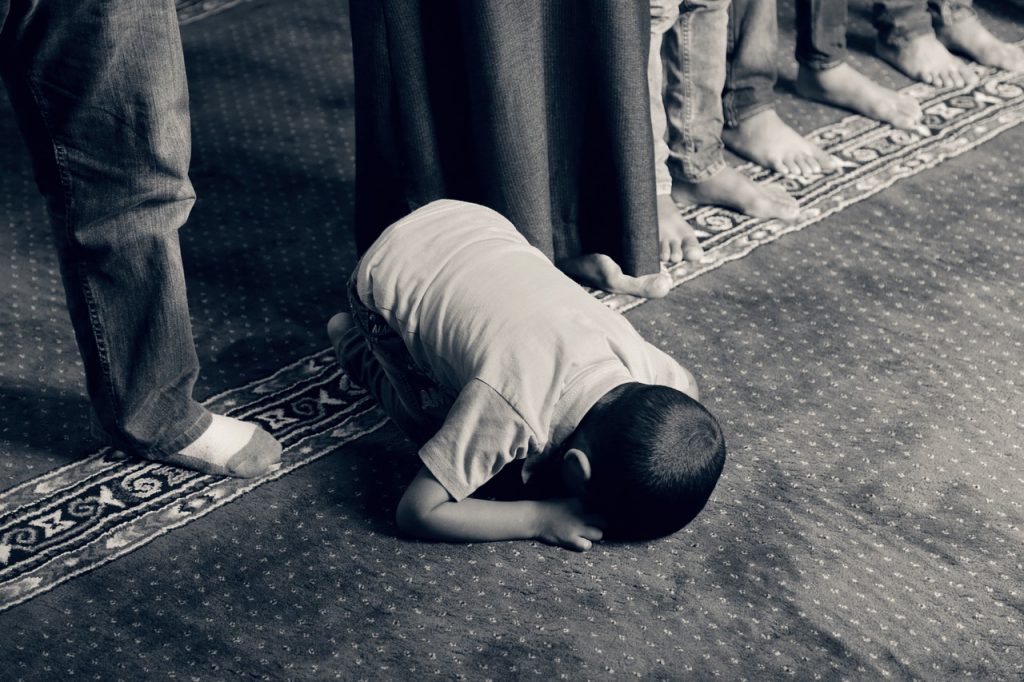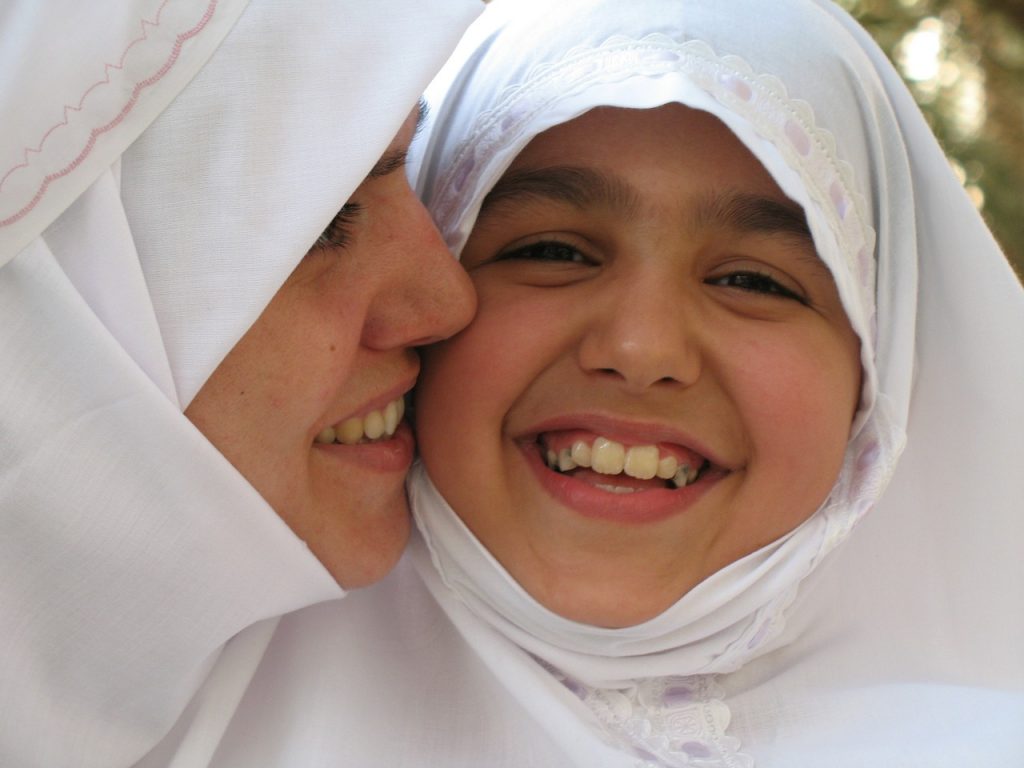wasat

Dealing with Non-Practising/Sinful Close Family Members: Argument for “Hate the Sin, Not the Sinner”
31 July 2019 3:03 pm // Written by Muhammad Haniff Hassan, Dr.
When a Muslim has committed himself to live based on his religious principles, the existence of a close family member (i.e. parents, siblings, spouses or children) who chooses a different way of life or possesses habits that do not conform with Islamic teachings (i.e. drinking alcohol, taking drug, fornication, gambling or non-performance of religious obligations) will pose a challenge and problem because:
- the incompatibility of such lifestyle and habits with one’s personal beliefs and principles
- the effect of such lifestyle and habits on the home environment and other family members
- energy, mind and time are needed to counsel the family member because Islam obligates Muslim to enjoin good and forbid evil, especially among close family members and often this would cause strain in relationship
- situation like this may induce stress, sadness and frustration to a person.
The outcome of the situation varies. Some may be able to remain patient, continue the good counsel and remain strong. However, many fall into depression and experience broken relationship that harm personal wellbeing and harmonious family life.
How should a Muslim deal with such situation?
The first step, for a Muslim, is to do reflection on self and the problem; What is the reason of factor that could have caused the family member to live such lifestyle or commit the forbidden habit?
The objective is to identify the root of the problem that would help identify the solution and also for Muslim to identify his own weakness, flaw or negligence that might have contributed to the deviant behaviour or caused his efforts to counsel the family member ineffective.
This is consistent with the act of the Prophet during his trip to the city of Taif for the purpose of inviting its inhabitants to Islam. While on his way back to Mecca after been harshly rejected by the inhabitants, he prayed to Allah for guidance and strength and reflected that the rejection might due to his untactful approach and lack of strategy, instead of blaming the people. His prayer, as reported in a hadith, was;
“O Allah! To you alone I make complain of my helplessness, the paucity of my resources and my insignificance before mankind. You are the Most Merciful of the mercifuls. You are the Lord of the helpless and the weak. O Lord of mine! Into whose hands would you abandon me? Into the hands of an unsympathetic distant relative who would sullenly frown at me? Or to an enemy who has been given control over my affair? But of Your wrath does fall on me, there is nothing for me to worry about.
I seek protection in the light of Your Countenance. which illuminates the heaven and dispels darkness, and which controls all affairs in this world and in the Hereafter. May it never be that Your wrath, that You should be wrathful to me. And there is no power nor resource, but Yours alone.”[i] (Narrated by Al-Tabrani)
A Muslim must also maintain positive attitude that the situation that he is facing is a form of test from Allah s.w.t. and for a good reason as stipulated in the Qur’an;
“And most certainly shall We try you by means of danger, and hunger, and loss of worldly goods, of lives and of [labour’s] fruits. But give glad tidings unto those who are patient in adversity.” (The Qur’an, 2:155)
The Qur’an has clearly stated that test and tribulation is part and parcel of life,
“He who has created death as well as life, so that He might put you to a test [and thus show] which of you is best in conduct, and [make you realize that] He alone is almighty, truly forgiving.” (The Qur’an, 67:2).
And some of life tests come from immediate family members,
“O you who have attained to faith! Behold, some of your spouses and your children are enemies unto you: so beware of them! But if you pardon [their faults] and forbear, and forgive-then, behold, God will be much-forgiving, a dispenser of grace.” (The Qur’an, 64:14-5)
Although life test comes with challenges and hardship, it also opens opportunity for gaining God’s pleasure if a Muslim maintains patience and strives to his best ability to overcome it.
This positive attitude is consistent with the teaching of Islam that Muslim should strive to maintain good faith towards Allah s.w.t. as mentioned in a hadith,
“Allah said: I am to my slave as he thinks of Me, (i.e. I am able to do for him what he thinks I can do for him).” (Narrated by Al-Bukhari).
And not to lose hope when facing difficult situation,
“..and do not lose hope of God’s life-giving mercy: verily, none but people who deny the truth can ever lose hope of God’s life-giving mercy.” (The Qur’an, 12:87)
Lessons from the prophets
The Qur’an is the primary reference book for Muslims in all life challenges.
In the context of the problem being discussed, the Qur’an has narrated stories of prophets as best examples and inspiration for Muslims.
There are stories of prophets’ dealing with their close family members who committed grave sins and some others rejected the call to tawhid and chose to be on the side of disbelievers.
These prophets are:
- Adam – his sone Qabil disobeyed God’s instruction on offering sacrifice and murdered his brother (The Qur’an, 5:27-30)
- Nuh – his wife and son rejected his faith and perished with disbelievers (The Qur’an, 11:42 and 66:10)
- Lut – his wife refused to accept tawhid and perished with disbelievers (the Qur’an, 66:10)
- Ibrahim – his father chose to be with his idol-worshiping people (The Qur’an, 6:74)
- Ya’kob – his children’s conpiracy caused tremendous hardship to his son Yusuf (Chapter 12 of the Qur’an)
- Muhammad – his uncle Abu Talib refused to utter the shahadah till his last breath (The Qur’an, 28:56).
In addition, there is also a story of Asiah, wife of Pharaoh, in the Qur’an who believed in Allah secretly while his husband was a staunch opponent of prophet Musa (the Qur’an, 66:11)
The above examples illustrate the following scenarios where a Muslim might be facing;
- pious husband living with misguided wife (story of Lut and Nuh with their wives)
- pious wife living with misguided husband (story of Asiah with Pharaoh)
- pious child living with misguided parent (story of Ibrahim with his father)
- pious parent living with misguided children (story of Adam, Nuh and Ya’kob with their children)
- pious individual living with close relatives (story of prophet Muhammad with his uncle and relatives).
Thus, whatever scenario of a misguided close family members a Muslim may have to face, there is example in the Qur’an from the stories of prophets where he can learn from and seek guidance.
There are, however, common lessons from all the stories. The first and most glaring lesson is the prophets maintained family relationship with the misguided family members i.e. wife, father and children and did not ostracise them.
Nuh and Lut did not divorce or chase away the wives. Nuh and Ya’kob did not cut off relationship with their children. Both continued to be dutiful fathers and showed care and concern to them. Ibrahim did not show disrespect to his father. The Qur’an recorded Nuh’s love to his son till the last minute of his life in 11:42-5 and Ibrahim’s respectful conversation with his father in 19:41-6.
Both were constantly praying for the misguided family members until Allah s.w.t. commanded them to stop (The Qur’an, 9:113-4, 11:46)
The examples contain important lesson for Muslims who are facing the same situation – maintaining relationship and not ostracising the misguided family, despite their misguided behaviour. The wisdom it would allow door of communication remains open which, one day, may cause change in their hearts and behaviour, in contrast of severing relationship, which may not only close the door of communication but also hurts the feelings and aggravates the problem.
Secondly, the prophets continued showing love, care and concern to the family members, although they did not condone the misguided behaviour.
This, thus, brings to important lesson that maintaining family relationship and fulfilling their rights are not forbidden and boycotting and marginalising them are not the only way to deal with them or address the problem. They cannot also be regarded as approving and condoning the sins.
The prophets’ stories also teach Muslim parents that faith and piety cannot be inherited. They can only be instilled in children through consistent and continuous education and counsel i.e. from birth till adult.
Parents, thus, must realise that occupying themselves with plentiful ibadah to attain personal taqwa and closeness to God, might not have effect on their children’s piety, if it is done at the expense of the children’s religious upbringing.
From blaming, to self-empowering
It is important to note that maintaining positive relationship and showing love and care may have unintended effect. Instead of realising the mistake and taking steps for change, the family member may regard it as acceptance and, thus, continue with the misguided behaviour.
Thus, such approach must be complemented with active and constructive engagement to counsel the family member and change his behaviour or lifestyle.
This requires knowledge and skills from various disciplines which should be acquired through methodological learning and training from experts because, most often, the misguided behaviour is a result of complex and multiple factors i.e not simply lack of religious knowledge or guidance and, thus, continuous preaching about halal dan haram in Islam, even in a non-confrontational manner, may not have the intended effect.
Instead of spending time blaming, condemning and lamenting about the challenge faced, it would be better and productive for a Muslim who intends to see change in his misguided family member to spend time and energy in empowering himself with necessary tools i.e. knowledge and skills that would help dealing with the situation in an effective constructive manner.
Not to forget, a Muslim must constantly seek guidance from Allah s.w.t. and maintain close relationship with Him through continuous ibadah that He provides strength and patience and guides towards harmonious resolution of the problem.
It is empowering also to realise that a person’s door towards repentance is not closed as long he is alive. Stories of sinners discovering or rediscovering the truth is not uncommon.
Two examples can be cited. First is the story of a companion by the name of Tulaihah bin Khuwailid. He apostasised and claimed to be a prophet during the Prophet’s life time. However, he returned to Islam during the rule of Abu Bakr, the First Caliph, after his army was defeated in a battle. He later died as martyr in the Battle of Nahawand against Persian empire army during the Second Caliph Umar’s rule. Another companion, Abdullah bin Abi Sarh left Islam and joined the Meccans who were the enemy of the Prophet. However, he repented and returned to Islam and was appointed a governor by Uthman, the Third Caliph.
Don’t be quick to judge
For member of community, the stories of the prophets teach that one should not be quick to judge or condemn Muslims who have to live with non-practising family members.
Such situation is not a cause for blame in Islam. Allah s.w.t. did not reprimand his prophets for having sinful and disbelieving children, wives and parents. A Muslim is only blamed in such situation if he condones with heart and deed the misguided behaviour and does not strive to counsel the family members.
Unless one has evidence that such Muslim is in complicit with the misguided family members in sin, not judging him negatively is a virtue based on principle, “al-asl baraah al-zimmah” (one should be considered innocent and free from any obligation, duty or blame, until proven otherwise) and the Qur’anic verse that says,
“O you who have attained to faith! Avoid most guesswork [about one another] for, behold, some of [such] guesswork is [in itself] a sin…” (The Qur’an, 49:12)
The Qur’an states that no person will be burdened by the sin of others and a person will only be accounted for the deed that he performed,
“That no bearer of burdens shall be made to bear another’s burden; and that nought shall be accounted unto man but what he is striving for.” (The Qur’an, 53:38-9)
Those who are tested by Allah s.w.t. with non-practising family members, they are required only to counsel them in best manner,
“Call thou (all mankind] unto thy Sustainer’s path with wisdom and goodly exhortation, and argue with them in the most kindly manner- for, behold, thy Sustainer knows best as to who strays from His path, and best knows as to who are the right-guided.” (The Qur’an, 16:125)
And in best of their ability,
“Remain, then, conscious of God as best you can…” (The Qur’an, 64:16).
The outcome (hidayah to change) is in the hand of Allah s.w.t.,
“Verily, thou canst not guide aright everyone whom thou lovest: but it is God who guides him that wills [to be guided]; and He is fully aware of all who would let themselves be guided.” (The Qur’an, 28:56)
[i] English translation from Al-Mubarakfuri (1996), The Sealed Nectar, Saudi Arabia: Maktabah Dar-us-Salam, p. 137.











